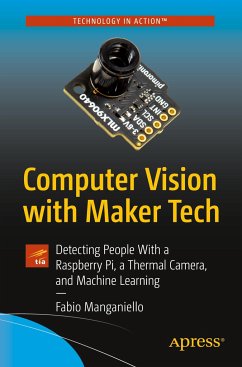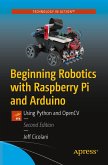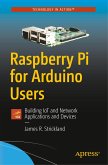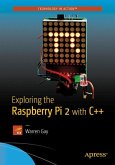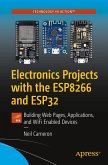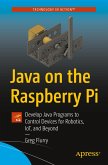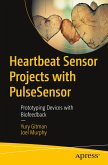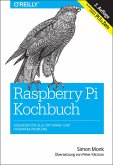Harness the untapped potential of combining a decentralized Internet of Things (IoT) with the ability to make predictions on real-world fuzzy data. This book covers the theory behind machine learning models and shows you how to program and assemble a voice-controlled security.
You'll learn the differences between supervised and unsupervised learning and how the nuts-and-bolts of a neural network actually work. You'll also learn to identify and measure the metrics that tell how well your classifier is doing. An overview of other types of machine learning techniques, such as genetic algorithms, reinforcement learning, support vector machines, and anomaly detectors will get you up and running with a familiarity of basic machine learning concepts. Chapters focus on the best practices to build models that can actually scale and are flexible enough to be embedded in multiple applications and easily reusable.
With those concepts covered, you'll dive into the tools for setting up a network to collect and process the data points to be fed to our models by using some of the ubiquitous and cheap pieces of hardware that make up today's home automation and IoT industry, such as the RaspberryPi, Arduino, ESP8266, etc. Finally, you'll put things together and work through a couple of practical examples. You'll deploy models for detecting the presence of people in your house, and anomaly detectors that inform you if some sensors have measured something unusual. And you'll add a voice assistant that uses your own model to recognize your voice.
What You'll Learn
Develop a voice assistant to control your IoT devicesImplement Computer Vision to detect changes in an environmentGo beyond simple projects to also gain a grounding machine learning in generalSee how IoT can become "smarter" with the inception of machine learning techniquesBuild machine learning models using TensorFlow and OpenCV
Who This Book Is For
Makers and amateur programmers interested in taking simple IoT projects to the next level using TensorFlow and machine learning. Also more advanced programmers wanting an easy on ramp to machine learning concepts.
You'll learn the differences between supervised and unsupervised learning and how the nuts-and-bolts of a neural network actually work. You'll also learn to identify and measure the metrics that tell how well your classifier is doing. An overview of other types of machine learning techniques, such as genetic algorithms, reinforcement learning, support vector machines, and anomaly detectors will get you up and running with a familiarity of basic machine learning concepts. Chapters focus on the best practices to build models that can actually scale and are flexible enough to be embedded in multiple applications and easily reusable.
With those concepts covered, you'll dive into the tools for setting up a network to collect and process the data points to be fed to our models by using some of the ubiquitous and cheap pieces of hardware that make up today's home automation and IoT industry, such as the RaspberryPi, Arduino, ESP8266, etc. Finally, you'll put things together and work through a couple of practical examples. You'll deploy models for detecting the presence of people in your house, and anomaly detectors that inform you if some sensors have measured something unusual. And you'll add a voice assistant that uses your own model to recognize your voice.
What You'll Learn
Develop a voice assistant to control your IoT devicesImplement Computer Vision to detect changes in an environmentGo beyond simple projects to also gain a grounding machine learning in generalSee how IoT can become "smarter" with the inception of machine learning techniquesBuild machine learning models using TensorFlow and OpenCV
Who This Book Is For
Makers and amateur programmers interested in taking simple IoT projects to the next level using TensorFlow and machine learning. Also more advanced programmers wanting an easy on ramp to machine learning concepts.

